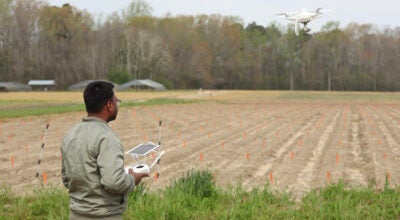Community service: It’s complicated
Published 8:13 pm Saturday, September 30, 2017
Suffolk Public Schools students who graduated in 2017 completed thousands upon thousands of community service hours for local nonprofit organizations, their own schools and other schools in the community, government organizations, political candidates, their churches and their neighbors.
But several dozen of them also did something unexpected — they worked at for-profit businesses and claimed those hours as “community service,” according to the results of a Freedom of Information Act request.
Students at King’s Fork, Lakeland and Nansemond River high schools who graduated this summer were the first class required to complete 50 hours of community service in order to graduate. They logged those hours with officials at their schools and were asked to write an essay about what they learned from each experience.
Most students did community service at several different locations, so very few students earned all of their hours at a business. But dozens of students counted at least a few hours at dollar stores, salons and barber shops, construction companies, dance schools and home health care agencies — businesses that typically pay employees — as community service.
School Board member David Mitnick said he didn’t think students should be permitted to count hours at for-profit businesses.
“That sounds a little suspicious, if the company is for-profit and these kids are working there gratis, I don’t know whether it’s their employer and the employer just signed off on it or what,” he said. “That is a little questionable, and I think we need to look at that list.”
School Board member Enoch Copeland, however, said he thought it was fine for students to claim hours at businesses.
“I don’t have any problem with that,” he said. “We approved it with the understanding that the students would render service in various capacities. I don’t see too much of a change from that.”
School Board member Linda Bouchard said more clarity on what counts as community service has always been one of her concerns about the program, but she gave kudos to the businesses that participated and the experience the students gained.
“If they’re smart enough to get those kids in there to work for nothing, way to go,” she said. “What the interns get out of it is they’re able to learn what’s going on. I’m not saying that’s necessarily bad.”
Superintendent Dr. Deran Whitney said while working at a for-profit business may not have necessarily been what was expected, he is still proud of the students’ initiative and noted they likely still learned something from the experience.
“I’m very proud of the students,” he said. “I’m proud of them obtaining it, whether it was a nonprofit or for-profit organization. It helps the student as far as learning a trade, information about a business.”
“The idea is to allow students to have an opportunity to volunteer and to do something and not necessarily get paid or expect something from it,” Whitney added.
He said the school system intends to refine expectations for future classes of students meeting the requirement. Parents and students will also be kept better informed of the number of hours they still need to meet the requirement, and students will be able to begin earning hours as early as sixth grade.
“I do think we could have done some things differently as far as more notification — more consistent and ongoing notification so that students aren’t caught at the last minute,” Whitney said.
Some students also took a while meeting the requirement. About a month before graduation, only 73 percent of King’s Fork seniors had met it, with Lakeland at 83 percent and Nansemond River at 91 percent.
But the school division said no seniors who had met all other graduation requirements failed to graduate because of lack of community service.
According to information gained through a Freedom of Information Act request, no waivers were requested or given for any of the class of 2017, despite many of the students meeting the requirement at the last minute.
—Intern Ella Bronaugh contributed to this report.






